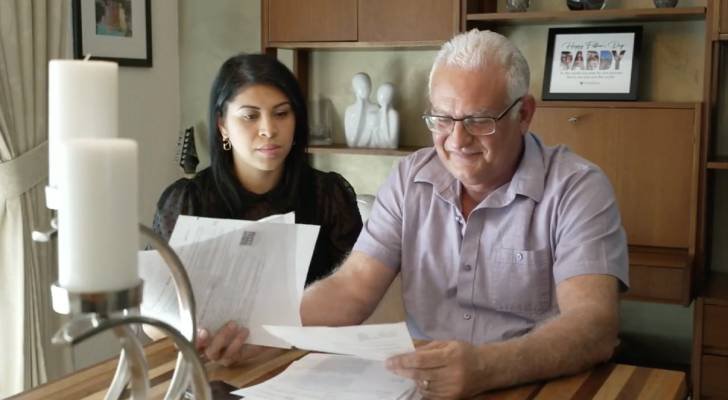Bryan and Ingrid Zappulla thought they had finally found their dream home in Florida. They were especially delighted with the hand-painted mural of a Parisian street that adorned one wall.
“This is the perfect house for my son,” Ingrid told 7 News Miami. The Zappullas bought the property for $790,000 in 2020 from two Russians who built the house themselves.
But a few months later, the Zappullas’ dream turned into a nightmare when the couple received a $30,000 penalty from the IRS — a penalty they say they shouldn’t have to pay.
The penalty is the result of the seller’s attorney’s failure to pay the required capital gains taxes on the home. According to 7 News Miami legal expert Howard Finkelstein, foreign nationals — like the Russian duo — who sell property in the U.S. must pay capital gains taxes.
Specifically, they must complete IRS Form 8288 and pay 10% of the sales price within 45 days of selling the property.
However, Bryan was told that the Russian couple’s lawyer closed his office for nine months during the COVID-19 pandemic and, when he reopened, finally turned over the remaining $79,000 to the IRS. But by then it was January 2021 — nine months behind schedule.
“He was just sitting on it [during the pandemic]Bryan said. “Maybe it was ignorance. Maybe it was COVID.” In any event, the IRS fined Zappullas $30,000 in late payment penalties.
When Bryan contacted the IRS and told them that Russo’s lawyer had made a mistake, the representative told him that he was “the only one with assets that [the IRS] can attach.’”
Although the attorney also admitted his mistake to the Zappullas, Bryan was concerned about the “final balance reminder” sent by the IRS, which included a “notice of intent to seize.”
Although the mistake was made by an attorney for the Russian sellers, News 7 Miami attorney Howard Finkelstein said IRS rules allow them to pursue home buyers for any outstanding debts.
“Legally, the attorney hired to pay the IRS is liable for the penalty,” he explained. “But Congress created a lazy way to get money by going after the home buyer … legally, the IRS can do that to Bryan, but it’s not the right thing to do.”
